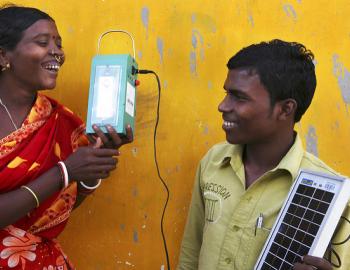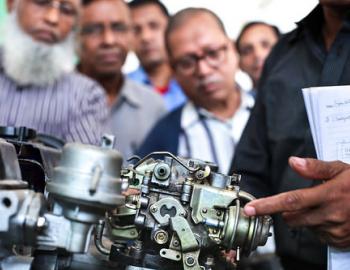REPORT: Supporting climate negotiations - examining the evidence
REPORT: Supporting climate negotiations - examining the evidence
The poorest and most vulnerable countries often have the most to lose from climate change, but usually have fewer climate related resources and limited expertise to fully represent their interests at international climate change negotiations. Over the past decade various donor agencies and private funders have provided assistance to these countries to try and redress this imbalance. This paper, Supporting climate negotiations - examining the evidence, draws on the findings of a study commission by CDKN and undertaken by Ricardo-AEA which reviews the existing evidence base and a range of case studies to (i) understand how effective past and present negotiation support efforts have been, and (ii) how to strengthen future negotiation support efforts.
Negotiation support projects target three broad drivers of influence; strengthening delegations, developing negotiation strategies and shaping international negotiations. The first tranche of negotiation support projects tended to focus on strengthening delegations by providing financial assistance to enable the poorest and most vulnerable countries to send delegates to the negotiations. More recent efforts have placed a greater emphasis on developing national positions on technical issues, and building alliances with other nations to increase power and influence in the negotiations.
Whilst negotiation supports projects vary in terms of the nature of support they provide, to whom, at what scale and how that support is delivered, we have identified some core principles to assist those planning negotiations support projects. Negotiations support projects should ensure that activities are demand-led but flexible in their approach; target the right audience; identify credible suppliers to deliver the support; consider a range of delivery options; and build sustainable capacity.
The paper concludes that negotiation support efforts are generally heading in the right direction. Current projects are enhancing the ability of the poorest and most vulnerable countries to participate in and influence climate negotiations. Going forward, it will be important for donors and beneficiaries to establish process to capture the lessons learned and understand how individual projects contribute to existing negotiating support efforts, to continue to develop our understanding of what effective negotiation support looks like.
Key Messages
- Projects to support climate negotiators should focus on three broad drivers of influence: strengthening delegations, developing strategies and shaping international negotiations.
- The first tranche of negotiations support projects tended to focus on strengthening delegations, primarily by providing financial support to enable delegates to attend negotiations. More recent projects place a greater emphasis on beneficiary countries to develop negotiation strategies and share international negotiations.
- Negotiations support projects should: ensure that activities are demand-led but flexible in their approach; target the right audience and identify credible suppliers to deliver the support; consider a range of delivery options; and build sustainable capacity. These principles should underpin the design and delivery of future projects.
- Donors and beneficiaries should establish processes to capture lessons learned and understand how individual projects contribute to existing negotiations support efforts.
Download - Supporting climate negotiations - examining the evidence



